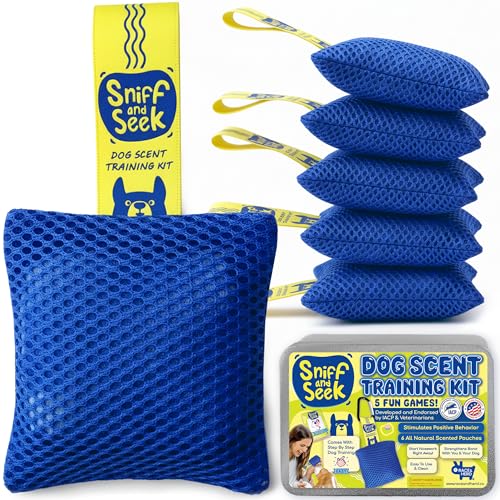




Mixing products designed for humans with those for animals often raises eyebrows, especially in grooming. The straightforward answer is no; formulations intended for people may not suit the unique needs of your furry friend. Canine skin and fur differ significantly from that of humans, requiring specific care tailored to their biology.
During my early days as a dog owner, I made the mistake of applying my own hair conditioner on my pup, thinking it would make her coat soft and shiny. While she emerged smelling lovely, I quickly noticed irritation around her neck where the product had touched her skin. That experience taught me a valuable lesson about the importance of using appropriate grooming products.
Veterinarians often advise against using any personal care products on pets due to potential skin sensitivities and allergies. Instead, look for conditioners specifically formulated for canines. These products maintain the natural oils in their fur, ensuring that their coat remains healthy and radiant. If your pet struggles with dryness or tangles, seek out products enriched with natural ingredients like oatmeal or aloe vera, which can soothe and nourish their skin.
Recommendations for Using Conditioner on Canines
Using products meant for humans on pets isn’t advisable. Many conditioners contain ingredients that can be harmful to furry friends, such as fragrances, preservatives, and chemicals. These substances can cause skin irritations or allergic reactions. It’s better to opt for specially formulated grooming products designed for canine coats, ensuring safety and comfort.
Choosing the Right Grooming Products
When selecting a grooming product, look for options that mention hypoallergenic or natural ingredients. These formulations cater to a pet’s unique skin pH and coat type, promoting a healthy shine without adverse effects. For those looking to enhance their pet’s nutrition, pairing quality grooming with a balanced diet is key. Consider exploring the best nutritious wet dog food to support overall wellness.
Signs of Skin Irritation
If you’ve ever used a product not meant for your pet and noticed excessive scratching, redness, or a dull coat, it’s crucial to discontinue use immediately. Always monitor for any signs of discomfort after grooming, and consult a veterinarian if you observe any troubling symptoms. Prioritising your pet’s health ensures they stay happy and vibrant.
Understanding the Ingredients in Conditioners for Humans
Reading labels on hair care products is crucial, especially when considering alternatives for our furry friends. Many formulations contain substances that can be harmful or irritating to animals. Here’s a breakdown of common components to watch out for:
- Sulfates: These cleansing agents create lather but can strip natural oils, potentially leading to skin irritation.
- Fragrances: Synthetic scents may cause allergic reactions in pets. Opt for fragrance-free options whenever possible.
- Silicones: While they provide shine and smoothness, they can build up on fur, making it difficult to wash out and leading to skin issues.
- Preservatives: Ingredients like parabens and formaldehyde-releasing agents are common. These can be toxic over time, especially if ingested during grooming.
- Alcohol: Often used in styling products, certain alcohols can dry out skin and coat, leading to discomfort.
Choosing products with natural ingredients can help maintain a pet’s coat and skin health. Look for options that include:
- Aloe Vera: Soothes and hydrates, ideal for sensitive skin.
- Coconut Oil: Moisturises fur and skin, promoting a healthy shine.
- Shea Butter: Provides deep conditioning without harmful chemicals.
Always consult with a veterinarian before trying new grooming products. Their insights can ensure your pet’s wellbeing while keeping their coat in top condition.
Potential Risks of Using Human Hair Products on Pets
Using products formulated for humans can lead to several health issues in pets. Many hair care items contain ingredients that are safe for us but can irritate or harm animals. One of the most significant risks involves skin reactions. Pets have different skin pH levels compared to humans, making them more susceptible to irritation from various chemicals.
Common Ingredients to Watch Out For
Here are some common ingredients in human hair care products that pose risks to furry friends:
| Ingredient | Potential Risk |
|---|---|
| Sodium Lauryl Sulfate | Skin irritation, allergic reactions |
| Fragrances | Allergic reactions, respiratory issues |
| Preservatives (e.g., Parabens) | Hormonal disruptions, skin irritation |
| Alcohol | Drying of skin and coat, irritation |
Symptoms of Adverse Reactions
After using unsuitable hair products, watch for signs like excessive scratching, redness, swelling, or hair loss. If any of these symptoms appear, consult a veterinarian immediately. Choosing products specifically designed for pets ensures safety and health, keeping our companions happy and comfortable.
Signs Your Canine May Have an Adverse Reaction
Watch for excessive scratching or biting at the coat. This behaviour can indicate irritation or an allergic response to applied products. If your furry friend starts to act restless or agitated, it might signal discomfort.
Physical Symptoms
Keep an eye out for redness or inflammation on the skin. Rashes or hives are clear indicators that something is amiss. Additionally, if you notice any swelling around the face, particularly the eyes or muzzle, it’s time to take action.
Digestive Issues
Vomiting or diarrhoea are serious signs that should not be ignored. If your pet shows these symptoms after exposure to certain grooming products, a visit to the vet is warranted. Watch for changes in appetite or lethargy as well; these can be signs of a more significant reaction.
If you observe any of these signs, discontinue use immediately and consult a veterinarian for advice tailored to your pet’s needs. Quick action can help prevent more severe health issues down the line.
Alternative Products for Canine Coat Care
Opt for specially formulated pet shampoos and conditioners. These products are designed to cater to the unique pH levels of canine skin, ensuring a gentle cleanse without irritation. Brands like Earthbath and Pet Head offer excellent options that leave coats shiny and manageable.
Another fantastic choice is oatmeal-based washes. They soothe itchy skin and provide moisture, making them ideal for those with sensitive dermis. Vet’s Best has an oatmeal shampoo that’s particularly well-regarded for its calming effects.
Natural Remedies
Consider coconut oil for a nourishing treatment. A small amount applied directly to the coat can add shine and hydration while also warding off pests. Just remember to wash it out thoroughly, as excess oil can attract dirt.
Aloe vera gel is another natural option. It has soothing properties that can help with dry or irritated skin. Apply a thin layer to affected areas and watch your canine enjoy the relief.
Brushes and Tools
High-quality brushes are crucial for maintaining a healthy coat. Invest in a slicker brush or a deshedding tool, depending on your companion’s fur type. Regular brushing removes loose hair and dirt, promoting a clean and glossy appearance.
Additionally, using a grooming mitt can help distribute natural oils throughout the coat, enhancing its shine while also providing a pleasant experience for your pet. Look for mitts with gentle bristles for maximum comfort.
Incorporating these alternatives into your grooming routine will keep your furry friend looking and feeling their best, free from the risks associated with inappropriate products.
When to Consult a Veterinarian About Grooming Products
Always seek professional advice if your furry friend experiences unusual reactions after using grooming items. If you notice symptoms like excessive itching, redness, or hair loss, it’s time to reach out to a vet. They can provide guidance tailored to your pet’s specific needs.
Additionally, if your companion has existing skin conditions or allergies, discuss grooming products with a veterinarian prior to use. Products that are safe for most animals may not be suitable for those with sensitivities.
Regular check-ups with your vet can help identify any underlying health issues that might be exacerbated by certain grooming agents. If your pet has persistent skin problems, a veterinarian can recommend the best course of action.
It’s also wise to consult a professional if your pet ingests any grooming product. Some formulations can be toxic, and immediate veterinary attention may be necessary depending on the ingredients involved.
In summary, when in doubt about grooming items, don’t hesitate to ask a vet. Their expertise can prevent potential harm and ensure your pet remains healthy and happy.







